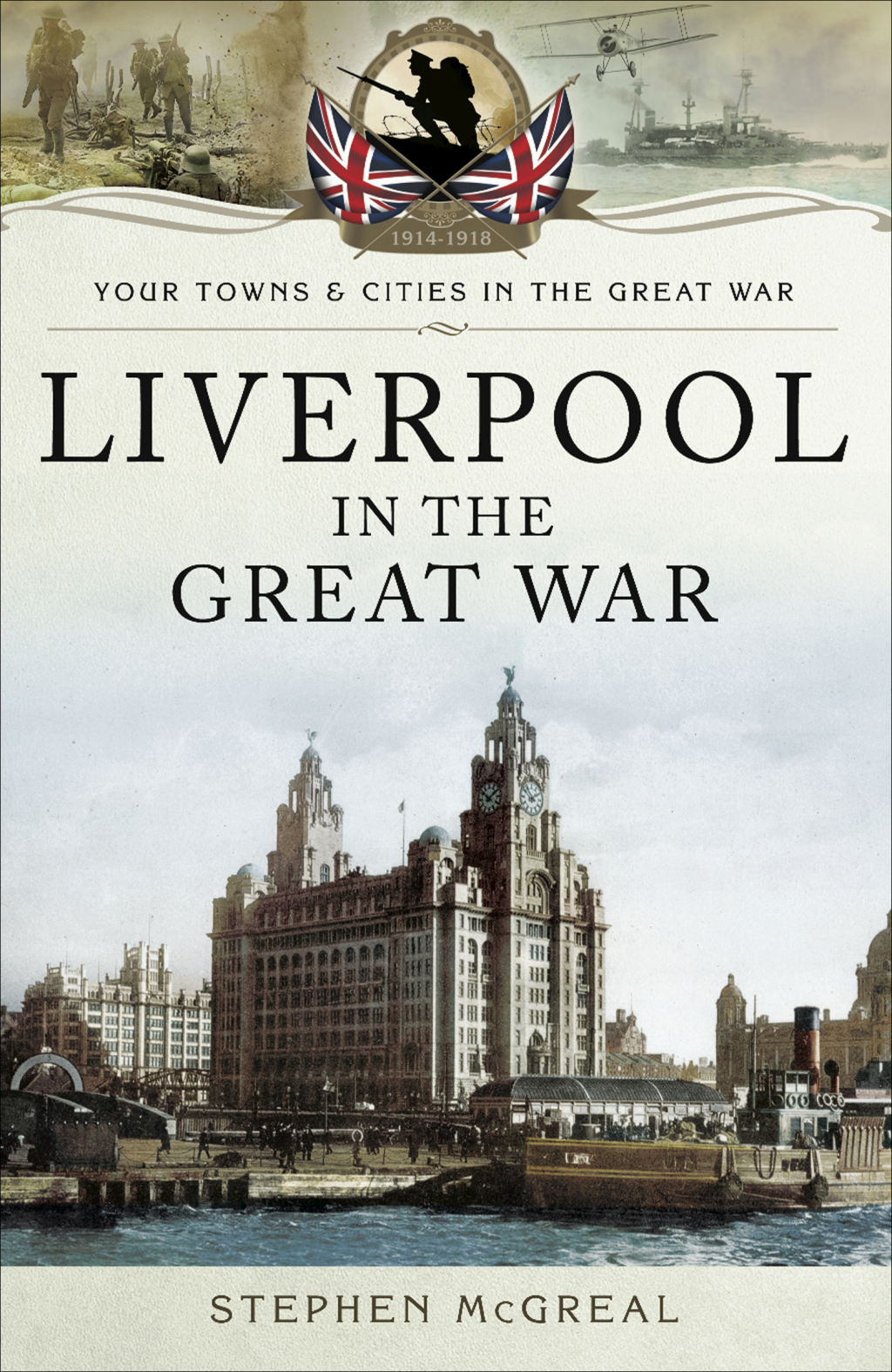Additional information
| Full Title | Liverpool in the Great War |
|---|---|
| Author(s) | McGreal, Stephen |
| Edition | |
| ISBN | 9781473840744, 9781473821613 |
| Publisher | Pen and Sword Military |
| Format | PDF and EPUB |
Original price was: $13.50.$3.38Current price is: $3.38.
Access Liverpool in the Great War Now. Discount up to 90%
| Full Title | Liverpool in the Great War |
|---|---|
| Author(s) | McGreal, Stephen |
| Edition | |
| ISBN | 9781473840744, 9781473821613 |
| Publisher | Pen and Sword Military |
| Format | PDF and EPUB |
At the dawn of the twentieth century Liverpool had 8 miles of docks thronged with cargo ships loading or discharging goods. When Britain declared war on Germany in the summer of 1914, Liverpool’s geographical position demanded it be one of the chief home bases for wartime operations. It was a challenge the city accepted with relish and went on to become one of the most significant home-front contributors to the Allied victory. Justifiable, the city cenotaph proudly declares ‘out of the north parts came a great company and a mighty army’, but there is a forgotten army of patriotic civilians whose endeavours played a key role in the Allied victory. Despite an acute shortage of skilled labour, Liverpool led the way in the construction of munition factories and developed the required skills to ‘feed the guns’. Inititally, men who were too old for military service produced shells, but a local factory became the first in the country to introduce women shell-makers, and this initiative was replicated throughout the nation As the men made the transition from street to trench, Liverpool and district developed into a vast arsenal employing approximately 30,000 women and producing a million shells a month. Civilians were also actively involved in tending the wounded, fund-raising for hospital equipment and ambulances and the provisions of home comforts for those at the front. When the German submarine onslaught almost severed Britain’s maritime trade routes food rationing was introduced. Damaged ships limped into Liverpool were ploughed up as the nation ‘dug for victory’. The city was also a portal through which thousands of American troops passed
Original price was: $2.99.$1.00Current price is: $1.00.
Access Liverpool in the Great War Now. Discount up to 90%
| Full Title | Liverpool in the Great War |
|---|---|
| Author(s) | Stephen McGreal |
| Edition | |
| ISBN | 9781473841277, 9781473821613 |
| Publisher | Pen & Sword Military (ORIM) |
| Format | PDF and EPUB |
At the dawn of the twentieth century Liverpool had 8 miles of docks thronged with cargo ships loading or discharging goods. When Britain declared war on Germany in the summer of 1914, Liverpool’s geographical position demanded it be one of the chief home bases for wartime operations. It was a challenge the city accepted with relish and went on to become one of the most significant home-front contributors to the Allied victory. Justifiable, the city cenotaph proudly declares ‘out of the north parts came a great company and a mighty army’, but there is a forgotten army of patriotic civilians whose endeavours played a key role in the Allied victory. Despite an acute shortage of skilled labour, Liverpool led the way in the construction of munition factories and developed the required skills to ‘feed the guns’. Inititally, men who were too old for military service produced shells, but a local factory became the first in the country to introduce women shell-makers, and this initiative was replicated throughout the nation As the men made the transition from street to trench, Liverpool and district developed into a vast arsenal employing approximately 30,000 women and producing a million shells a month. Civilians were also actively involved in tending the wounded, fund-raising for hospital equipment and ambulances and the provisions of home comforts for those at the front. When the German submarine onslaught almost severed Britain’s maritime trade routes food rationing was introduced. Damaged ships limped into Liverpool were ploughed up as the nation ‘dug for victory’. The city was also a portal through which thousands of American troops passed; they stayed briefly at Springfield Park Rest Camp before entraining south. This is the fascinating but largely forgotten story of how Liverpool provided the sinews of war.
